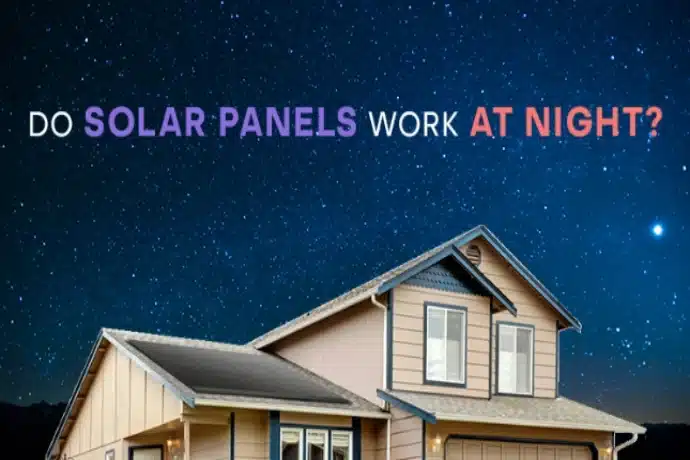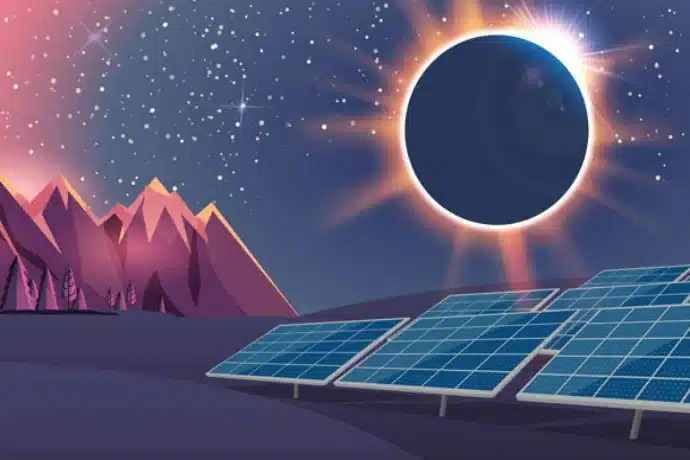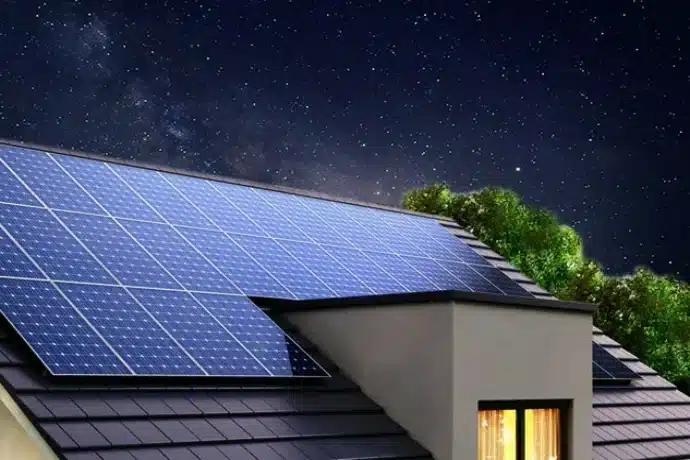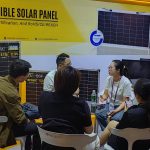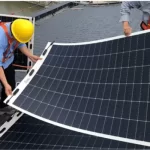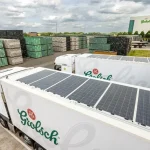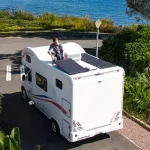Table of Contents
- What Are Solar Panels?
- The Science Behind Solar Energy
- How Solar Panels Generate Electricity
- Energy Storage Solutions
- Role of Inverters in Solar Systems
- Off-Grid vs. Grid-Tied Systems
- Innovations in Solar Technology
- The Role of Backup Generators
- Energy Consumption Patterns
- Cost-Benefit Analysis of Energy Storage
- Environmental Impact of Solar Energy
- Government Incentives for Solar Power
- Challenges of Solar Power at Night
- Case Studies of Successful Solar Systems
- FAQs
- Conclusion
Solar energy has gained popularity as a clean and renewable source of power. As the world shifts towards sustainable energy solutions, understanding how solar panels function, especially in the absence of sunlight, becomes crucial. This article delves into the workings of solar panels, their limitations at night, and the innovative solutions that ensure continuous power supply.
What Are Solar Panels?
Solar panels, also known as photovoltaic (PV) panels, are devices designed to convert sunlight into electricity. They are made up of many solar cells, which are composed of semiconductor materials, usually silicon. When sunlight hits these cells, it excites electrons, creating an electric current. Solar panels come in various types, including monocrystalline, polycrystalline, and thin-film, each with its own efficiency and cost factors.
The Science Behind Solar Energy
How Does Solar Work? The process by which solar panels generate electricity is rooted in the photovoltaic effect. When photons from sunlight strike the semiconductor material in the solar cells, they knock electrons loose from their atoms. This action generates a flow of electricity, which can then be captured and used to power homes and businesses. The efficiency of this process depends on the quality of the solar cells and the amount of sunlight received.
How Solar Panels Generate Electricity
- Absorption of Sunlight: Solar panels absorb sunlight through their photovoltaic cells.
- Electron Excitation: The absorbed sunlight excites electrons in the cells, creating an electric field.
- Electric Current Creation: The electric field causes the electrons to flow, generating a direct current (DC).
- Inverter Conversion: An inverter converts the DC into alternating current (AC), which can be used by household appliances.
Daytime Solar Power Generation
During the day, especially during peak sunlight hours, solar panels operate at maximum efficiency. The power output depends on several factors, including the angle of the panels, weather conditions, and geographic location. Solar panels are most efficient between 10 AM and 4 PM when the sun is at its highest point in the sky.
Nighttime and Solar Panels
At night, solar panels do not produce electricity because there is no sunlight to excite the electrons in the photovoltaic cells. This is a fundamental limitation of solar energy systems. However, this does not mean that homes and businesses cannot rely on solar power 24/7. There are various solutions to ensure continuous power supply.
Energy Storage Solutions
One of the primary methods to address the lack of solar power at night is through energy storage solutions, such as batteries. These batteries store excess energy generated during the day and discharge it at night or during cloudy periods. Common types of batteries used in solar systems include:
- Lithium-Ion Batteries: Known for their high efficiency and long lifespan.
- Lead-Acid Batteries: More affordable but with a shorter lifespan and lower efficiency.
- Flow Batteries: Offer scalability and long duration storage, suitable for large installations.
Role of Inverters in Solar Systems
Inverters play a crucial role in solar energy systems by converting the DC electricity generated by solar panels into AC electricity used by most household appliances. There are different types of inverters, including string inverters, microinverters, and hybrid inverters, each offering unique benefits and applications.
Net Metering and Solar Panels
Net metering is a system that allows solar panel owners to feed excess electricity back into the grid in exchange for credits. These credits can then be used to offset the electricity consumed from the grid at night or during low production periods. Net metering helps balance the energy production and consumption, ensuring that solar panel owners benefit from their system even when the sun isn’t shining.
Hybrid Solar Systems
Hybrid solar systems combine solar power with other energy sources, such as wind or diesel generators, to provide a reliable power supply. These systems can switch between different power sources based on availability and demand, ensuring continuous power even during nighttime or cloudy days.
Off-Grid vs. Grid-Tied Systems
Off-Grid Systems:
- Operate independently from the utility grid.
- Rely heavily on batteries and backup generators.
- Suitable for remote locations with no grid access.
Grid-Tied Systems:
- Connected to the utility grid.
- Use net metering to manage excess energy.
- Require less battery storage due to grid support.
Innovations in Solar Technology
Advancements in solar technology aim to enhance efficiency and storage capabilities. Some notable innovations include:
- Perovskite Solar Cells: Promising higher efficiency at a lower cost.
- Bifacial Panels: Capture sunlight on both sides, increasing energy production.
- Solar Roof Tiles: Integrate seamlessly with traditional roofing materials.
The Role of Backup Generators
Backup generators provide an additional power source for solar systems, especially in off-grid setups. They can be powered by diesel, propane, or natural gas, and are typically used during extended periods of low solar production or battery depletion.
Energy Consumption Patterns
Understanding energy consumption patterns helps optimize solar system design and performance. Most households consume more electricity in the evening and early morning, which underscores the importance of effective energy storage and management solutions.
Cost-Benefit Analysis of Energy Storage
Investing in energy storage systems can be expensive, but the benefits often outweigh the costs. Factors to consider include:
- Initial Cost: High upfront investment for batteries.
- Long-Term Savings: Reduced reliance on grid power and lower electricity bills.
- Energy Independence: Greater resilience against power outages.
Environmental Impact of Solar Energy
Solar energy significantly reduces carbon emissions and dependence on fossil fuels. By generating clean electricity, solar panels help mitigate climate change and promote sustainability. Additionally, solar installations have a relatively low environmental impact compared to traditional energy sources.
Government Incentives for Solar Power
Many governments offer incentives to encourage solar adoption, including:
- Tax Credits: Reductions in income tax for solar investments.
- Rebates: Direct financial support for installing solar systems.
- Feed-In Tariffs: Payments for excess energy fed back into the grid.
Challenges of Solar Power at Night
Despite its benefits, solar power faces challenges, particularly at night. These include:
- Energy Storage Costs: High costs associated with batteries.
- Weather Dependency: Variability in solar production due to weather conditions.
- Initial Investment: High upfront costs for installation and equipment.
Case Studies of Successful Solar Systems
Real-world examples demonstrate the effectiveness of well-designed solar systems. For instance:
- Residential Homes: Solar panels with battery storage providing continuous power.
- Businesses: Large-scale solar installations reducing operational costs.
- Community Projects: Solar farms supplying clean energy to local grids.
FAQs
Do solar panels work at night?
No, solar panels do not generate electricity at night as they require sunlight to function. However, stored energy in batteries can be used during nighttime.
What is the best way to store solar energy for nighttime use?
The most effective way to store solar energy is through batteries, particularly lithium-ion batteries, which offer high efficiency and longevity.
Can solar panels power a house at night?
Yes, with the help of energy storage solutions like batteries, solar panels can power a house at night by using the stored energy generated during the day.
Is net metering beneficial for solar panel owners?
Yes, net metering allows solar panel owners to earn credits for excess electricity fed back into the grid, which can offset nighttime electricity consumption.
What are hybrid solar systems?
Hybrid solar systems combine solar power with other energy sources, such as wind or diesel generators, to ensure a reliable power supply at all times.
How do off-grid solar systems work?
Off-grid solar systems operate independently from the utility grid, relying on batteries and backup generators to provide continuous power, even at night.
Conclusion
Solar panels do not work at night, but with advancements in energy storage and hybrid systems, it is possible to maintain a continuous power supply. Understanding the intricacies of solar power generation and storage can help users maximize the benefits of their solar installations. As technology evolves, solar energy will continue to play a crucial role in the global transition to sustainable energy.
For more information on solar panel performance during cloudy days, visit Sungold Solar’s guide on the best solar panels for cloudy days.


